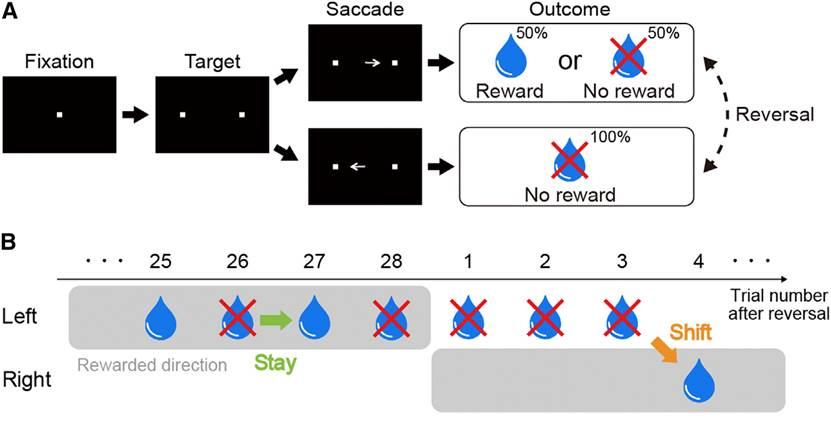Research News
Discovery of brain mechanism to learn from negative experiences—Two brain regions divide tasks to avoid unfavorable happenings
When we lose money, get scolded, or gain less than expected, we feel uncomfortable. If anything unacceptable happens after a certain activity, we would have to learn to avoid that activity from the next time. Neuroscience researches in the past have shown that numerous regions in brain get highly activated after uncomfortable event. However, those researches did not uncover how the brain regions collaborate together for the learning from negative experiences.
This time, Takashi Kawai of and Masayuki Matsumoto of Faculty of Medicine at the University Tsukuba discovered how two brain regions in animals divide the tasks to be activated for the learning from negative experiences. The discovery is the outcome by the joint research with Kansai Gakuin University and Primate Research Instisute at Kyouto University.
The research team of Kawai and Matsumoto aimed to understand how animal brain works in regards to the learning of avoiding uncomfortable happenings. They assigned a learning exercise to monkeys in makaku genus with developed cognitive function, and then they recorded the brain activities in the monkeys. The team focused on two brain regions, the lateral habenula nucleus and the anterior cingulate cortex, known as highly active regions when an uncomfortable thing occurs. As a result, the lateral habenula nucleus works to alert immediately the happening of uncomfortable thing to other regions while the anterior cingulate cortex switch the future behavior in more appropriate way by referring to the negative experiences in the past and present.
The discovery deepen our understanding of brain especially on learning how to cope with negative experiences and even would lead to research further the nerve basis of the result on learning disorder.

Reversal Learning Task and Behavioral Performance.
(A) Unilateral-probabilistic reversal learning task. (B) Choices and consequent outcomes during an example session with monkey A.
Original Paper
Takashi Kawai, Hiroshi Yamada, Nobuya Sato, Masahiko Takada, and Masayuki Matsumoto, Neuron, Roles of the lateral habenula and anterior cingulate cortex in negative outcome monitoring and behavioral adjustment in nonhuman primates. DOI: 10.1016/j.neuron.2015.09030


